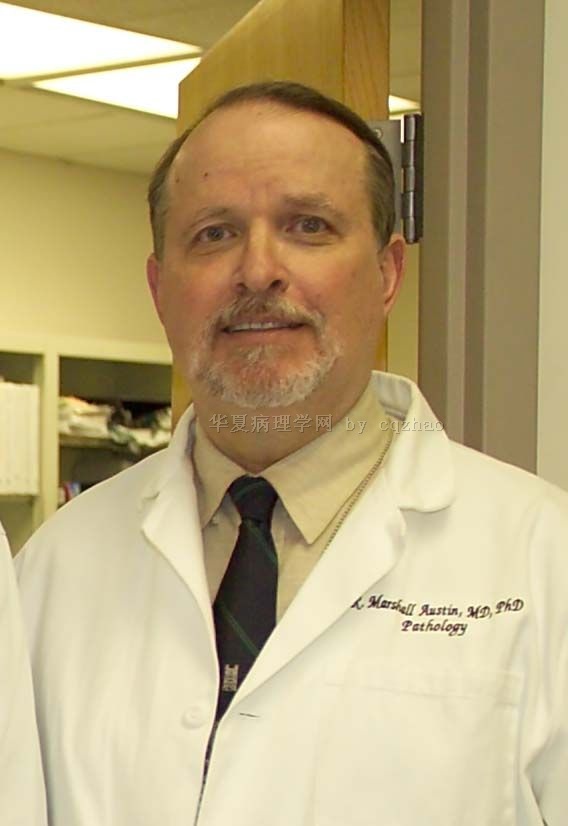| 图片: | |
|---|---|
| 名称: | |
| 描述: | |
- let us have a discussion: 宫颈液基 vs 传统刮片
Recently I noticed some topics related liquid based cytology (LBC) and conventional Pap smears (CP) in this website. We know that the price of LBC is higher than CP.
Hope we can discuss the disadvantage and advantage of both methods.
What methods are used in your hospitals?
What method you think should be used in China now or future?
Also I will find some data to let you know the main methods used in other main countries. As of May 1, 2008, the United Nations has 192 members. In China we mention 国外, which include more than 190 contries.
Thanks
cz
-
本帖最后由 于 2009-03-07 23:04:00 编辑
In the US the amount of pathology service fee paid by insurance companies or medicaid or medicare is much less than that pathology required.
Pathology code for LBC and HC2 HPV test: about $100
But the true money for a Pap test
Reimbursement for Pap
CMS (Center for Medicare & Medicaid Service) National Limitation Amount (Medicare)
Conventional Liquid-Based
88164 $14.76 88142 $28.31
88147 $15.90 88174 $29.85
88148 $21.23 88175 $37.01
You can see it is very cheaper for a Pap test in the US. This is why many pathology departments do not like to do the Pap tests. However at least the price for LBC is two times of conventional Pap.
Dear 法师 : Thank you very much. I appreciate your work attitude. Your summary is very good. From your table I can know that you spent a lot of your time and considered the issue very carefully.
Generally speaking LBC is more sensitive and specific for the detection of SIL and glandular lesions, and easy to read. However conventional pap tests can get good results if the slides are prepared well.
From floor 81, Australia, New zealand, and some 北欧 countries still use CP.
城北 mentioned in other topic:
-
本帖最后由 于 2009-04-19 16:59:00 编辑
| 以下是引用cqzhao在2009-4-11 19:49:00的发言:
To 法师 Could you give a summary to compaare the advantage and disadventage of conventional smear and liquid based Pap test. in term of senstivity, specificity, difficulty or easy to read, price, cost effect, HPV test, automation, et al... You can make a list Thanks, cz |
 其实我没多少这方面的经验,也没权威的数据来说明这个问题,我仅根据平常的经验和本地的经济水平,人们对疾病的理解程度及从业人员技术水平来臆断的,如果条件容许,我倾向采用液基制片进行常规检测,在网站里我也发过一些传统制片的图片,虽然我们很努力的想做好,但就这么几例大家也会感觉到传统制片的缺陷带来的结果判断困难,有几例明显的HSIL,由于涂片模糊不清而没有信心直接报告.
其实我没多少这方面的经验,也没权威的数据来说明这个问题,我仅根据平常的经验和本地的经济水平,人们对疾病的理解程度及从业人员技术水平来臆断的,如果条件容许,我倾向采用液基制片进行常规检测,在网站里我也发过一些传统制片的图片,虽然我们很努力的想做好,但就这么几例大家也会感觉到传统制片的缺陷带来的结果判断困难,有几例明显的HSIL,由于涂片模糊不清而没有信心直接报告.
|
|
液基制片 |
传统制片 |
HPV测定 | |
|
获得满意的涂片 |
较容易 |
难 |
- | |
|
阅片的难易程度 |
轻松 |
困难 |
- | |
|
标本远距离保存及运输 |
容易做到 |
难以保证质量 |
容易做到 | |
|
检测的灵敏度 |
高 |
相对较低(不容易获得满意的涂片) |
高 | |
|
检测的特异性 |
相对上皮内病变 |
高 |
高 |
低 |
|
相对HPV感染 |
一般 |
一般 |
高 | |
|
检测的设备要求 |
从一般到较高 |
简单 |
高 | |
|
对商业耗材的依赖 |
高 |
低 |
高 | |
|
对人员的要求 |
高 |
很高,特别需要多部门的配合 |
较高 | |
|
测试的价格 |
中等 |
低 |
较高 | |
|
标准化及质量控制 |
容易做到 |
难以做到 |
容易做到 | |
|
有规律的持续监测并指导临床及时处理 |
容易做到 |
容易做到 |
较难做到 | |
感谢cqzhao老师引导我们进行这个讨论,在讨论中我们学到了很多.
To 法师
Could you give a summary to compaare the advantage and disadventage of conventional smear and liquid based Pap test. in term of senstivity, specificity, difficulty or easy to read, price, cost effect, HPV test, automation, et al...
You can make a list
Thanks,
cz
-
本帖最后由 于 2009-03-25 07:38:00 编辑
Ok. I showed you a lot of studies about comparsion between LBC and conventional Pap. Also I pasted current marketing about these two methods in the USA and some other countries.
Just let you know more information outside of China. If you read all papers and you will know which method is better and know why.
Thank all of you for the review and discuss of this topic. Especially thank 兰青风采 or 掌心0164 for your translation.
-
本帖最后由 于 2009-03-26 17:27:00 编辑
Dr. Austin asked his friend Jeff Keene to get the information.
(Austin博士从他的朋友Jeff Keene哪里获得的信息。)
Mr. Keene is Director of Global Communications, Hologic/Cytyc Corp (compay to make ThinPrep Pap Test, TPPT). This information is a business issue to a company. So I think the data are relatively accurate. The company has not information in China. I do not know it is good or bad. (Keene先生是赛迪(Hologic/Cytyc Corp )公司全球联络部主任,这是一公司的商业信息。所以我认为这些数据是比较准确的。但是这个公司没有关于中国的信息,我不知道是好还是坏。)
UK and
(英国和爱尔兰100%液基细胞学,67% TPPT, 33% SP)
(Benelux 60%液基细胞学,55%TPPT,余下主要是SP)
Suisse 75% LBC, 60% TPPT, rest mainly SP
(瑞士75%液基细胞学,60% TPPT,余下主要是SP)
(德国10%液基细胞学,60%TPPT)
(北欧15%液基细胞学,80%TPPT)
(澳大利亚100%传统涂片和25%自费加做TPPT)
(新西兰60%传统涂片、25%TPPT和15%的其他液基细胞学)
For
(对于中国,我们没有可靠的市场份额数据。)
(希望这些有帮助)
(Jeff Keene是赛迪公司全球联络部主任和付款联系人)
-
本帖最后由 于 2009-03-26 22:10:00 编辑
I asked my best American friend Dr. Austin to get some information about LBC and convention Pap ratio in different countries. I would like to introduce him in our web after I got his permission. He loves Chinese. I told him the story about our web.(我从我最好的美国朋友Austin博士哪里得到了一些关于不同国家使用液基细胞学和传统涂片比例的信息。得到他许可后我很高兴地在我们网站上介绍他。他喜欢中国人。我告诉过他关于我们网站的事情。)
Dr. R. Mashall Austin is Professor of Pathology and Director of Cytopathology ar Magee-Womens Hospital, University of Pittsburgh Medical Center. Dr. Austin is a 1977 graduate of the Duke University School of Medicine Medical Scientist Training Program (MD, PhD) where he earned his PhD in virology. He received subspecialty training in Gynecologic and Breast pathology and Cytopathology at Armed Forces Institute of Pathology (AFIP) from 1983-1986.(R. Mashall Austin博士是匹兹堡大学医学中心Magee妇产医院病理学教授和细胞病理学主任。Austin博士于1977年毕业于杜克大学医学院,获得医学博士学位(MD), 并获得病毒学哲学博士学位(PhD)。1983-1986年,他在武装部队病理学研究所接受了妇科、乳腺病理学和细胞病理学专科训练
Dr. Austin is an active researcher, author, lecturer. His current areas of research interest focus on cervical cancer screening, risk managment, new technology, and public and professional educatin in cervical cancer screening. He is international well-recognized gynecologic cytopathologist. Dr. Austin is a leading medical ligal consultant in cases involving cytology litigation in the USA. He is a past President (2004-2005) of the American Society of Cytopathology (ASC) and served as Advisor to the Cytopathology resource Committee of the College of American Patholofists (CAP). Dr. Austin has served as section editor and on the editoral boards of numerous publications, among the Archives of Pathology and Laboratory Medcine, Diagnostic Cytopathology, Cancer Cytopathology, Acta Cytologic, and CytoJournal. (Austin博士是一位优秀的研究人员、作者和讲师。他目前的研究兴趣主要集中在宫颈癌筛查中的宫颈癌筛查、风险管理、新技术和公众及专业人员的教育等方面。他是国际公认的妇科细胞病理学家。Austin博士是美国的细胞学医疗事故的医学法律顾问领导组成员。他是美国细胞病理学会前任主席(2004-2005)和担任美国病理学家大学委员会细胞病理分会的顾问。Austin博士一直担任着许多出版物的主编和编辑,其中有《病理学档案和实验室医学》、《诊断细胞病理学》、《肿瘤细胞病理学》、《兽类细胞学》和《细胞杂志》。)

名称:图1
描述:图1
赵老师,谢谢您!其实改名字主要原因如下:
1、掌心0164是我99年第一次上网的时候的第一个网络名字(10年了),有纪念意义。
2、我的邮箱zhangxin0164@yahoo.com.cn或zhangxin0164@qq.com都来源于“掌心”的汉语拼音。
3、最重要的是我希望自己:在这个纷繁复杂的社会中,能做一个掌控自己内心中所思、所想和内心中最向往的东西;不希望被太多的外在东西左右了我心灵深处的想法;所以取这个名字也是对自己一种警示作用。
4、原来的“兰青风采”有被人误认性别的嫌疑,哈哈。
以上就是我改名的原因,希望您能喜欢。

- 掌心0164



















